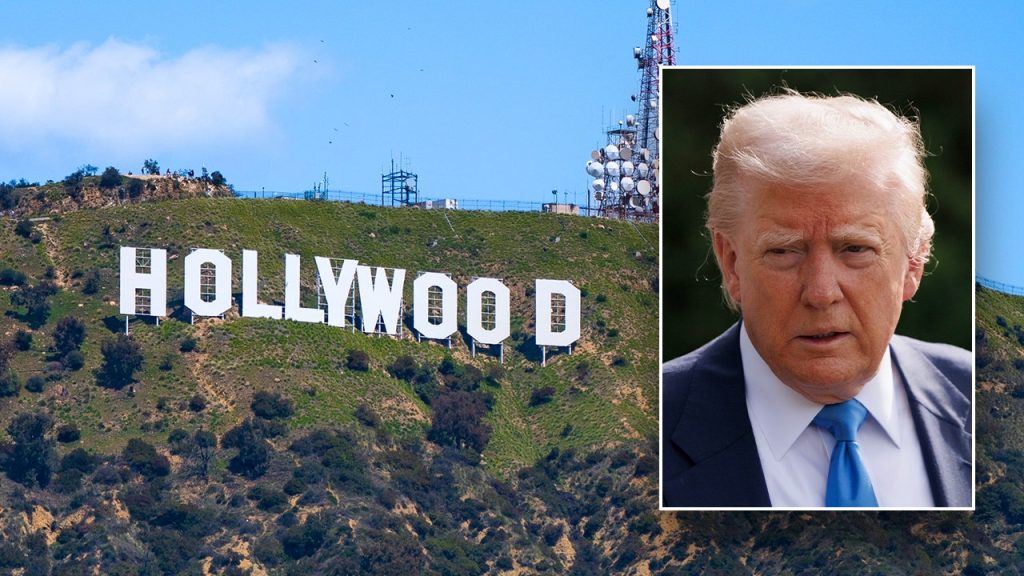In a recent social media post, President Donald Trump criticized the current state of the American film industry, declaring it to be “DYING a very fast death.” He expressed concern over the competition from foreign nations offering incentives that lure filmmakers and studios away from the U.S. In light of these challenges, Trump revealed plans to impose a 100% tariff on movies produced abroad, citing national security threats and the need to revive the American film industry.
| Article Subheadings |
|---|
| 1) Trump’s Critique of the Film Industry |
| 2) The Proposed Tariff on Foreign Films |
| 3) Implications of Tariff Implementation |
| 4) Historical Context of Tariffs in Commerce |
| 5) Public and Industry Reactions |
Trump’s Critique of the Film Industry
In a striking statement made on social media, President Donald Trump lamented the decline of the American film industry. He noted that the situation has reached a critical point, stating that the industry is on a rapid downward trajectory. Trump attributed this decline to aggressive foreign competition, claiming that other countries are providing incentives that successfully entice American filmmakers and studios away from the United States. He went so far as to describe this phenomenon as part of a “concerted effort by other Nations,” framing it as a national security threat. The president’s remarks signal a growing concern within the U.S. that domestic industries are losing competitiveness due to international pressures.
The Proposed Tariff on Foreign Films
Following his critique, President Trump detailed plans to impose a significant tariff on foreign-produced films. He announced his intent to institute a 100% tariff on any movies entering the United States, which are produced outside its borders. This tariff would mean that foreign films would effectively double in price for American consumers, a potential shift aimed at reinvigorating the domestic film industry. In his announcement, Trump authorized both the Department of Commerce and the United States Trade Representative to commence immediate actions toward establishing this tariff. His dispatch reflects a broader policy strategy to protect American interests and promote domestic production.
Implications of Tariff Implementation
The potential implementation of such a tariff will undoubtedly have vast implications. Firstly, a 100% tariff on foreign films could drastically alter consumer behavior, possibly leading to increased revenue for domestic productions. This could also incentivize filmmakers to produce more content in the U.S., preserving jobs and economically benefiting local film communities. However, the flip side may include backlash from international trade partners, leading to retaliatory tariffs on American goods. Additionally, industry experts express concern over how this policy could impact the diversity and variety of films available to American audiences, as foreign films often contribute significantly to the cinematic landscape in the U.S.
Historical Context of Tariffs in Commerce
To better understand the current proposal, one must look back at the historical context of tariffs. Throughout American history, tariffs have been utilized as a means to protect domestic industries from foreign competition. Similar proposals have surfaced in various sectors, ranging from steel to agriculture, often amid larger discussions on economic nationalism. While tariffs can provide short-term relief to struggling industries, their long-term efficacy remains widely debated among economists and policymakers. The historical precedents also highlight the potential for trade wars that can ensue, which raises a cautionary flag for the film industry should this tariff be realized.
Public and Industry Reactions
Public and industry reactions to Trump’s proposed tariff have been mixed. Some domestic filmmakers and studios have expressed support, seeing it as a necessary step in safeguarding American jobs and revitalizing their industry. Conversely, critics argue that a heavy-handed approach may alienate international collaborators and undermine the artistic diversity and market access that foreign films provide. Furthermore, audience reception may also be a significant factor; those who enjoy international cinema might feel restricted by the higher costs associated with accessing foreign content. This debate highlights the complex interplay between economic policy and cultural expression in a globalized world.
| No. | Key Points |
|---|---|
| 1 | Trump highlights the decline of the American film industry. |
| 2 | Plans for a 100% tariff on foreign-produced films announced. |
| 3 | Potential positive impact on domestic filmmaking and job preservation. |
| 4 | Historical context of tariffs shows mixed effects on industries. |
| 5 | Reactions from filmmakers and audiences showcase divided opinions. |
Summary
President Donald Trump’s recent declarations regarding the American film industry signal a potential protective shift in policy aimed at revitalizing domestic production. His proposed 100% tariff on foreign films has sparked discussions about the future of cinema in the U.S., weighing the advantages of job preservation against the risks of isolationism and retaliation. As the public and industry react to this announcement, the ongoing debate will likely shape the narrative of American filmmaking in the years to come.
Frequently Asked Questions
Question: What is the main reason for Trump’s proposed tariff on films?
Trump’s proposed tariff aims to protect the U.S. film industry from foreign competition, which he claims is diminishing American filmmaking due to incentives offered by other countries.
Question: How might the tariff impact American audiences?
The imposition of a 100% tariff could significantly increase the cost of foreign films, potentially reducing their availability and diversity within the American market, affecting consumer choices.
Question: What historical precedents exist for tariffs in American commerce?
Historically, tariffs have been used in sectors like steel and agriculture to protect domestic industries, although they can lead to trade wars and have varying long-term effectiveness.


